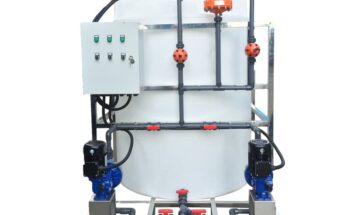Ali Hilayo a 45 year old fisherman has been fishing since childhood and his parents were doing same since their grandparents. But increasing pollution and reduction of fish stock at Keenjhar Lake turns him to hunt migratory birds during winter season.
This very important eco-system supports a rich biological diversity. Keenjhar Lake is situated in Thatta District, Sindh, Pakistan. It is 122 km away from Karachi. Being situated along the Indus flyway, the lake has been an important breeding, staging and wintering ground for a wide array of waterfowl. Common species of mammals found at the lake. Reptiles include Indian cobra, Saw-scaled viper and Monitor lizards. During a recent survey 48 different fish species were recorded from Keenjhar Lake.
Ali Hilayo realized “only hunting of birds would not resilient food and livelihoods of his family”. He started to entertain visitors at Keenjhar Lake with speed boat and in a short time number of his speed boats increased from one to four and set an example for other fishermen. A shift in occupation enabled other community members to think of the alternative of livelihoods rather than practicing illegal or unfriendly environmental activities such as hunting of migratory birds, mammals, stone extraction, and using zero size nets for fishing.
Also See : Protection and Sustainable Use of Drinking Water Source, The Rawal Lake
Soon after, Livelihoods concern brought fisher folks men and women together under one roof for discussing the alternative livelihoods in the leadership of Mr. Ali Hilayo. Almost all the development plans were man focused, because; due to cultural barriers, women of the community were not allowed to be engaged in outdoor activities for livelihoods; however, women themselves brought an idea to setup an eco-fish outlet at Keenjhar Lake, since they are expert in fish recipes and can prepare the order at household level collectively and send to outlet where local fish dishes would be served to visitors.
It was first time, women and men collectively thought some different from traditional embroidery or making some stitching work. The idea was appreciated very much because, it was empowering women practicing culture and promoting importance of Keenjhar Lake.
With the support of WWF-Pakistan’s Indus for All Programme, the Eco-Fish outlet was constructed and equipped with all facilities. Very soon, it becomes famous and attracts attention of visitors at Lake. Mr. Ali told; “It earns about 1 million approximately in every season (May to August) since last four years.”
Other fishermen at Picnic Point of Keenjhar Lake expressed; “In beginning, we all were not considering the eco-fish outlet as an option of alternative livelihood, but a group of 20 women in the leadership of Mr. Ali proved they can earn 12000 rupees approximately per month by cooking for few hours at their home. We appreciate the efforts and contribution of women for securing food of their families since the lake is steadily becoming dumping site of liter, unsafe chemicals of Kotri SITE area.”
Also Check : Ecological Profile of Sheosar Lake
A group of women collectively expressed “We are thankful to WWF for supporting us, today we can earn to feed our families at our own. This also helped our families not to migrate from Keenjhar to somewhere else”. They felt very sorry; due to limited skills of marketing and entrepreneurships otherwise, local eco-fish outlets could be started at every town or big city such as Karachi and Hyderabad.
Mr. Ali and group of 20 women are contributing greatly for conservation of the Keenjhar Lake and securing food for their families. The Eco-Fish outlet has become sustainable and today they are working at their own. Reflecting his emotions, Mr. Hilayo expressed and asked “If a very small initiative of WWF can contribute to save the livelihoods of 20-30 families, why our Government policies have failed to save this Lake?
Mr. Ali and a group of women were requesting to their elected representatives, Government official and Water Board Karachi for extending their sincere efforts for the development and conservation Keenjhar Lake. Because; this is not only the matter of water storage for Karachi but 50 villages having approximately 70’000 populations are living around this second largest fresh water lake in Pakistan and it is important Ramser Site, Wetland and Wildlife Sanctuary.



